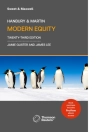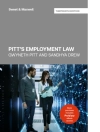What does it mean to have a constitution? Scholars and students associated with Walter Murphy at Princeton University have long asked this question in their exploration of constitutional politics and judicial behavior. These scholars, concerned with the making, maintenance, and deliberate change of the Constitution, have made unique and significant contributions to our understanding of American constitutional law by going against the norm of court-centered and litigation-minded research. Beginning in the late 1970s, this new wave of academics explored questions ranging from the nature of creating the U.S. Constitution to the philosophy behind amending it.
In this collection, Sotirios A. Barber and Robert P. George bring together fourteen essays by members of this Princeton group–some of the most distinguished scholars in the field. These works consider the meaning of having a constitution, the implications of particular choices in the design of constitutions, and the meaning of judicial supremacy in the interpretation of the Constitution. The overarching ambition of this collection is to awaken a constitutionalist consciousness in its readers–to view themselves as potential makers and changers of constitutions, as opposed to mere subjects of existing arrangements.
In addition to the editors, the contributors are Walter F. Murphy, John E. Finn, Christopher L. Eisgruber, James E. Fleming, Jeffrey K. Tulis, Suzette Hemberger, Stephen Macedo, Sanford Levinson, H. N. Hirsch, Wayne D. Moore, Keith E. Whittington, and Mark E. Brandon.
Tentang Penulis
Sotirios A. Barber is Professor of Government at the University of Notre Dame and is the author of a number of articles and books on the U.S. Constitution, including
On What the Constitution Means and
The Constitution of Judicial Power (Both Johns Hopkins).
Robert P. George is Mc Cormick Professor of Jurisprudence at Princeton University. He is the author of
In Defense of Natural Law (Oxford) and editor of
Great Cases in Constitutional Law (Princeton).












